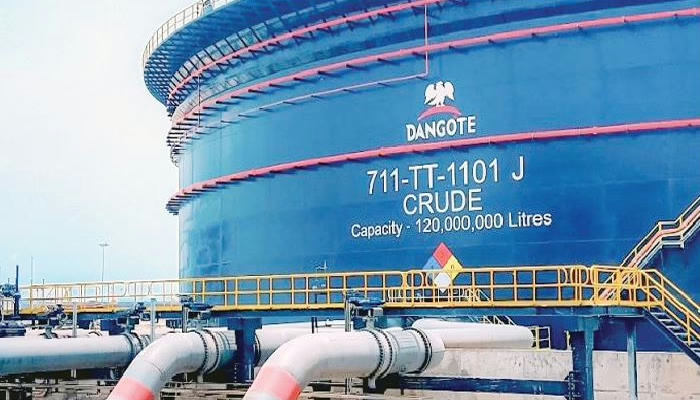The Depot and Petroleum Products Marketers Association of Nigeria (DAPPMAN) has challenged claims made by the Dangote Refinery regarding its ability to single-handedly meet Nigeria’s fuel demands amid the ongoing strike by petroleum tanker drivers.
On Tuesday, Anthony Chiejina, a representative of the refinery, asserted that there was “no fuel shortage” and that refinery operations were continuing smoothly despite the industrial action initiated by the Nigeria Union of Petroleum and Natural Gas Workers (NUPENG).
These remarks came amid growing public concern about a potential nationwide petrol shortage triggered by the strike.
Contrasting this view, DAPPMAN’s Executive Secretary, Femi Adewole, stated during an interview on Channels Television’s The Morning Brief on Wednesday that independent marketers and depot owners still dominate the supply chain for petroleum products across Nigeria.
“Depot owners are responsible for approximately 68 percent of the country’s petroleum product distribution,” Adewole explained. “In May, about 1.7 billion litres of petrol were circulated nationwide, with Dangote Refinery contributing only around 24 percent. In June, total distribution dropped to roughly 1.4 billion litres, and Dangote’s share was just 20 percent.”
He emphasized that despite the refinery’s production capabilities, depot operators have had to continue importing fuel because Dangote has not consistently allocated products to local depots.
READ ALSO: Rwanda launches Africa’s pioneering electric autonomous air taxi
“Even if Dangote has fuel in stock, without selling to depot owners, we are forced to import to sustain our operations,” Adewole noted. “We prefer sourcing domestically, but the pricing must be competitive. Currently, Dangote sells to international traders at ₦65 per litre less than to us, and at his gantry, the price is ₦45 lower. This pricing disparity makes it difficult for us to stay afloat.”
While affirming depot owners’ readiness to buy from the refinery under fair terms, Adewole urged the establishment of a transparent system that would enable DAPPMAN members to access Dangote’s products directly.
Regarding the labour unrest, Adewole linked the strike to Dangote Refinery’s initial refusal to permit union activities among its tanker drivers.
“Both the International Labour Organization and the Nigerian Constitution guarantee workers the right to unionize. Unfortunately, the refinery’s management initially opposed this, despite multiple union requests,” he said. “Although unionization has now been approved, deeper challenges in the downstream sector persist.”
NUPENG began its strike on Monday, accusing Dangote of hiring drivers on the condition that they abstain from joining labour unions-a claim the refinery has denied.

















